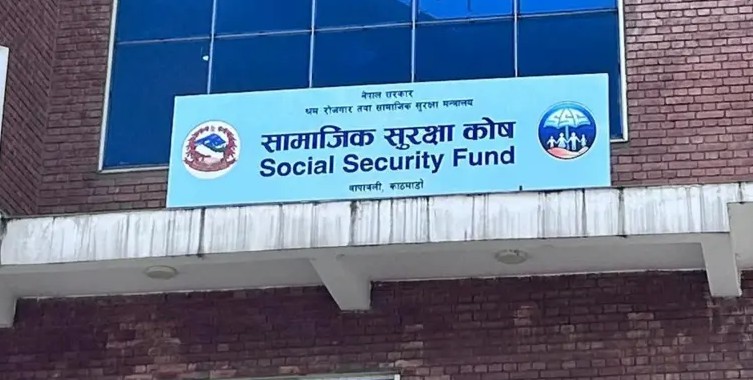

KATHMANDU: Contribution-based Social Security Fund (SSF) has enrolled over 2.4 million contributors as of August 3, 2025, according to its latest data.
Of the total 2,418,088 contributors, the majority—1.8 million—are Nepali migrant workers. The formal sector accounts for 679,007 contributors, while only 727 are from the informal sector and 444 from self-employment.
Since its launch six years ago, the Fund has collected Rs 88.13 billion, disbursing Rs 16.03 billion in claims. Despite covering around 5% of Nepal’s population, participation from informal and self-employed workers remains minimal, SSF Deputy Director Rohit Regmi said.
The SSF mandates compulsory registration for formal employees, including banks, factories, and companies, while offering voluntary enrollment for others. Workers contribute 11% of their salary, and employers add 20%, totaling 31% of the basic salary monthly.
The Fund operates on a solidarity principle, aiming to ensure income security during unemployment, provide health benefits, and offer family support in cases of disability or death. It aligns with the UN’s goal of achieving universal social protection by 2030.
Under its four benefit schemes, the SSF offers Medical, Health, and Maternity Protection and an Accident and Disability Protection Plan. Contributors can claim up to Rs 25,000 per year for OPD services and Rs 100,000 for IPD treatments.
Maternity benefits include up to 98 days of paid leave and Rs 15,000 for newborn care. For accidents and critical illnesses, the Fund covers up to Rs 1 million, with lifetime salary support for permanent disabilities. So far, 112,128 contributors have claimed Rs 2.19 billion under health and maternity, while 6,024 contributors have received Rs 2.10 billion under accident and disability claims.
Currently, 107 hospitals are enrolled in the SSF program across Nepal. Bagmati Province leads with 42 hospitals, followed by Koshi (24), Madhesh (20), Gandaki (10), Lumbini (9), and Sudurpaschim (2). Karnali Province has yet to enroll any hospitals.